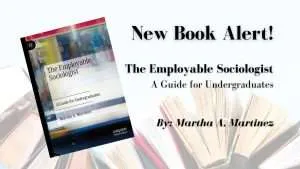In this editorial, Guest Contributor Aduwo Ayodele interviews a final year student of Sociology, at the University of Ibadan, Oluwumi Oyekanmi, an educationist. As an undergraduate of the prestigious University of Ibadan, Nigeria, she discusses the status and functions of Sociology perceptively.
This transcript also suggests through the interviewee’s point of view an assortment of goodwill that sociology entails to the benefit of an individual and the society. This interview turned out to be expository as it concentrates on the self-concept of sociology and the background experience of Oluwumi as a sociology student.
We are grateful to you for joining this conversation. Tell us more about yourself?
I am Oluwumi Elizabeth Oyekanmi, a final year student of Sociology at the University of Ibadan. I’m the founder of Student Guide, an educational organization. I’m a copy editor and a tutor. I also serve as a coach and mentor to children and teenagers, when I’m not doing all of that, I’m a poet and a drama minister.
In the first place, why do you choose to study Sociology?
Finding Sociology was a long and rough ride for me. I wanted to study Linguistics, and then Political Science Education, later Political Science, before ending up with Sociology. The first time I was advised to put in for the course, I thought it was glorified Social Studies, and the idea sounded inferior to me. I’m glad I followed the counsel because it has proved to be what I wanted and more.
Is studying Sociology as interesting as studying Music, Theatre Arts?
That would depend on individual interests. I find it intellectually stimulating and I’m sure you know that not everybody would be excited by something as such. Sociology is the discipline for those who are interested in how things work in the society and how to make them better. It is interesting to me because you get to question conventions, cultures, norms and values. I also think it’s interesting because you get to share your opinion.
We write a lot of essays and as long as you can prove your point with relevant theories and examples, you are not bound to think exactly like the lecturer. I appreciate the fact that our lecturers will not give us notes and just expect us to replicate them in examinations. You learn to think critically and make meaning of even the minutest social facts.
What makes Sociology a discipline in humanities?
Humanities are disciplines that study society and culture. Sociology studies social structures or institutions and cultures, which make it, fit in. However, in some institutions like in University of Ibadan, Sociology is categorized as a social science because it transcends philosophies and individual thoughts. A sociological inquiry has to be scientific. It means you should be able to prove that what you say can be observed by others and be the same or similar results would be obtained.
Considering all of the people you have met, either who have once studied Sociology or are still studying, can Sociology be applied to everyday life?
Sociology is practical. We are presented with ways in which we can make use of it every day. Let me cite the example of the END SARS protest, a Nigerian social movement. There’s a theory in Sociology called Marxism, based on the writings of Karl Marx. Marx believed that the ruling class will continue to exploit the lower class until the latter comes together to revolt. This is exactly what happened. Nigerians came out to challenge the status quo. They made use of their number which is one advantage they have against the ruling class. If one is acquainted with the writings of Marx and other conflict theorists, the protest will not be a surprise.
On the flip side, I have realised from Sociology that a revolution does not solve the problem of oppression. Except there are valid structures in place to replace the oppressive structure, a revolution will only be a chaos. Some people believe that the country’s problems would be solved if certain people are taken out of the picture but you have to answer questions such as ‘Who replaces them?’ ‘How do we ensure that the new people do not fall into the same acts?’
These people and the structures have functions and you might not be able to do away with them completely. Revolutions if not properly planned will either be a mere display of frustration or lead to anarchy.
Sociology helps one to look beyond the excitement and fuss. It helps one to think critically on macro and micro issues.
Why would you recommend Sociology to high school leavers who are seeking admission into Universities?
Sociology is a discipline with great prospects. One thing I appreciate about it is that it is broad. I’ll also recommend it for people who are still trying to find their passion and interest. I have a friend who is interested in the Sociology of Sports while I am interested in the Sociology of Education. As different as these interests are, we both found them in the discipline.
How far has Sociology helped you as an undergraduate?
It has afforded me the opportunity to participate in several extracurricular activities. It has also helped me to be more tolerant. It has helped me deal with ethnocentrism, that is, the feeling that your culture is the best. As an undergraduate, I have lived with people of different cultures and background. Sociology has helped me to consider the reasons behind some cultural beliefs and it has helped me to be more open-minded.
I found it surprising that the concept of family is more complicated than I had known. Upon exploring family in different cultures, I was taken aback.
Tell us about your departmental Sociological Association?
The Nigerian Sociological and Anthropological Students Association (NSASA) is a network of people with varying interests. I appreciate the opportunity to serve in different capacities and the networking and mentorship that takes place across levels. I am one of the academic mentors and I have also served in the electoral committee and the press organization of the department.
I am not interested in the political posts yet, I get the opportunity to work with people and add value to the association. Some people serve as executive members, legislative members, tutors and class representatives. The association can be very keen on social gatherings and events and that in itself is not a bad idea.
What is your relationship with other students of Sociology like?
I must say I am not one of the most sociable people in my department. Most people I relate with are those whom activities have brought us together at one point or the other. I haven’t done much of just walking up to people randomly to make acquaintance of them.
How has Sociology helped human societies in your view?
Sociology is about finding solutions to social problems. However, the work of the sociologist is largely unknown to the layman. We find Sociologists in sectors like health, education, economy, governance and so on. I should also emphasize the place of sociological research. Sociology is relevant to every part of the society.
When you are trying to solve a problem in any sector, before you can proceed to implement your ideas, you need the expertise of someone who can study the social patterns and culture of the group in question and counsel you accordingly. Sociologists are also very relevant to policy making.
Tell us about your class experience as a student of Sociology?
Apart from the part where the lecturers teach the basic tenets of the discipline, I enjoy the opportunity to be open-minded. Lecturers do not just see you as students that they are more experienced than, but as people who are also capable of social analysis.
Something must have intrigued you about Sociology in one of your classes. Tell us about it?
I cannot forget our class on Feminism. It has been one of our most interesting lectures so far. The lecturer called out some people to share their views. It was interesting to know the mindset some of my classmates have about women and life in general.
I also appreciate the day one of our lecturers debunked the idea of children as a means of social security. He advised that parents should plan well for their retirements as the probability of their children becoming successful and wealthy enough to take care of them as they would want to is low. Apart from the poor economy and poor living conditions, young people are ambitious. By the time the children are relatively comfortable, the parents would have passed the average life expectancy and might face health challenges that could lead to death.
With studying Sociology, some people believe that graduates of sociology rarely have organizations to work with. In what area or careers can a sociologist work after studying?
A sociologist can work as a lecturer, an administrator, a consultant, a policy officer, a human resources officer, a criminologist, a researcher, a counselor among others.
Some say Mathematics is a branch of science that is uneasy to study because some believe that it is hard and infinite to study. Would you say Sociology is difficult to study?
I have come to observe that there is no discipline that is very easy. It is only that the technicalities are different. Sociology might be challenging for someone who does not like to write essays or someone who prefers to answer questions with universal answers. Some science students might think that Sociology is difficult because they prefer to have formulas and work things out which is not very applicable in my discipline.
In Sociology examinations, sometimes, I might not fully understand what the lecturer expects me to write but I just put my experience and observations together to answer the question. As long as you can defend your point with relevant theories and examples, no one will hold you to ransom.
At moment, which of your courses interests you most?
Sociology of Family; this is because family is the bedrock of the society. A Yoruba adage says ‘If the home is not good, the society will be unbearable.’
What does it mean to think like a sociologist on every topic, issue, especially on every idea?
To think like a sociologist means to be open-minded, to read between and beyond the lines and to think critically.
In improving academic achievement in sociology classes, what and what have been the barriers?
When all you do is write essays, you are sometimes at the mercies of the examiner. You might think you have made a very convincing point whereas, the examiner thinks it’s good but not very deep. They don’t part with marks easily but they do not hoard them at the same time. Over the years, I have been improving. One has to understand the question, be well acquainted with history as well as current happenings.
What are the implications?
You might not score as much as you wish to. With time, as you understand the system and give it what it takes, your grades should improve.
What would be your recommendations?
Firstly, read, secondly live, thirdly, read.
Pay attention to the second part, live. Discuss your opinions with people. Do things you love. Observe what is going on around you. Write because you cannot know how good a writer you are if you do not write as a sociologist.
Why is academic achievement in sociology not about certificates?
Who said it isn’t? Well, I won’t try to devalue certificates here. From my experience in my department, if you make good grades in Sociology, you know what you are doing. However, we have people who do not make very good grades but display a deep knowledge of the discipline. There’s no way I won’t respect someone with a good result from Sociology, especially if it’s from the University of Ibadan. Since we mainly write essays, it shows that you are capable of great thoughts.
As an undergraduate, what do you suggest to be the minimum requirement to study Sociology?
I believe the standards set by the University are fair enough. It’s easy to think the discipline is easy and later fall out. One must display the ability to think which of course develops better over the years.
Finally, what would you do with Sociology in the time to come?
I intend to specialize in the Sociology of Education. I’m interested in the past and future trends in education, as well as inclusive education, the functionality of educational systems and structures, methods and policies.
Trust that you would be available to attend to our questions next time?
Definitely, I would. Thank you, Applied Worldwide.
Majoring in Sociology: Content, Branding and Media Solutions







